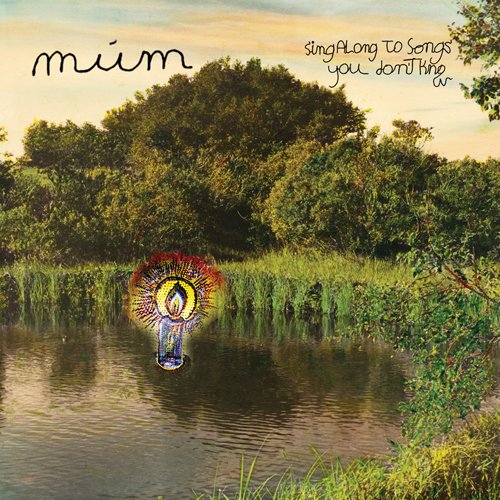
Mum
Sing Along To Songs You Don't Know
Release Date: Sep 22, 2009
Genre(s): Indie, Electronic
Record label: 2.O.G. Ent / P.A.L.
Music Critic Score
How the Music Critic Score works
Album Review: Sing Along To Songs You Don't Know by Mum
Satisfactory, Based on 7 Critics
Based on rating 7/10
Mum made a big change in their sound with Go Go Smear the Poison Ivy, replacing their lead vocalists and favoring a more focused approach than they did on their earlier albums. Sing Along to Songs You Don't Know isn't quite as drastically different, but it shows Mum's sound is still in flux: while these songs still show off the band's exquisite ear for detail, they're much less overtly electronic than their earlier work or even Go Go Smear, trading most of their naïve-sounding beats and synths for quirky but decidedly acoustic touches like prepared piano, marimba, hammered dulcimer, and a string quartet. The results are bustling, pastoral, indie pop that is often strangely outdoorsy and subtle -- parts of Sing Along to Songs You Don't Know feel like one long song.
Based on rating 7/10
Their fellow Icelanders Sigur Rós may have built a career on taking the intimate and local and revealing it as part of a grander whole, but Múm have always been less about expansive gestures than inner landscapes. Sigur Rós are the cloud clinging to a gently curving horizon; a haze of microscopic plankton in a softly glowing ocean; the zoom-out framing one among five million wildebeest roaming the plain. Whereas for Múm, the smallest of details are a spotlight for secret, solitary fears: bushes rustling at night, wisps of incoming mist, delicate cobwebs springloaded with a waiting spider.
Based on rating 3/5
Just as Flight of the Conchords have to live with the mantle of being "New Zealand's fourth most popular folk-parody duo", múm have to carry the burden of being Iceland's third most popular experimental rock act. And while, in lighter moments, the collective might sound like they're auditioning to soundtrack a romantic montage in the next quirky Michael Cera movie, their charm is enough to keep the sick bucket at bay. As if to prove the point, they manage to open their fifth album with lines like: "If I were a bumblebee and you were a puddle", without you wishing spontaneous combustion upon your stereo.
Based on rating 5.5/10
Múm (rhymes with "moon") is an Icelandic collective that blends folk and electronic music, but the result is surprisingly conventional. Sing Along to Songs You Don't Know, ostensibly written largely in response to political unrest in Iceland, is decidedly apolitical, so mild throughout that it risks no offense as its pleasant escapism sidesteps the clamor of competing interests. The quirky naïveté of the album title comes through more strongly on the superior first half of the album than on the second, which veers into string-laden melodrama.
Based on rating 5/10
When Iceland’s Múm made its quiet arrival on the music scene in 2000 with the whimsical and exquisite electropop album Yesterday Was Dramatic—Today Is OK, they were pioneers. Back then, they were often compared to their Icelandic peers Sigur Rós, but that had as much or more to do with their shared citizenship than anything else. Both groups sound as if it they would prefer to remain children their entire lives, but their sonic palettes were wildly different.
Based on rating 3.9/10
Múm's fifth album starts off kind of like Tim Hardin's 1966 hit for Bobby Darin, "If I Were a Carpenter". Except instead of imagining themselves as Joe the Woodworker (and you as a lady), the Icelandic collective are singing about-- well, the title's "If I Were a Fish". It'd almost definitely be making a geyser out of a lyrical plankton-fart to observe that the world's most famous carpenter also happened to be the world's most famous recruiter of fishermen.
Opinion: Very Good
Over the years, Icelandic experimental musical collective múm (pronounced “moom”) have seen a revolving door of musicians and singers, and they are a few years removed from the imaginative, crackling electronic fairy tales of their first two excellent albums, Yesterday Was Dramatic – Today Is OK (2000) and Finally We Are No One (2002). And while evolution is inevitable and change is often welcomed, such things can also lead to extinction. múm seem to have found a middle ground as the experimental orchestral pop on Sing Along To Songs You Don’t Know may lose some old-time fans but will also gain them some new ones.

